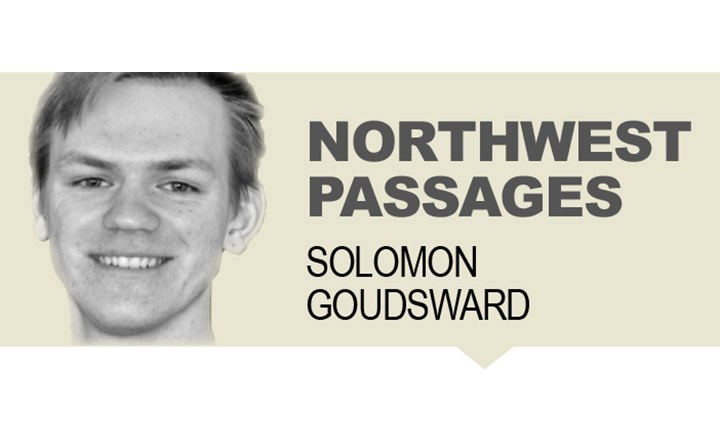The following is an abridged interview with Theatre NorthWest’s production manager, the inimitable John Reilly.
How did you get into theatre originally?
“I fell in. I got into it the usual way… I fell in love with a girl in Grade 9 and she was in theatre, so I went into theatre.”
That’s the way to do it. So were you performing or were you backstage?
“I got into acting first. Played Daddy Warbucks in Annie.”
Was that your first role?
“That was my first big role, yeah, that wasn’t just standing there. And at the same time the drama teachers just grabbed me and said, ‘Okay, you’re into this. Help us build the sets. You’re not afraid of heights, climb this ladder.’”
Favourite play of all time?
“My favourite play… I love Midsummer Night’s Dream. And I love The Black Bonspiel of Wullie MacCrimmon.”
Are you a big Shakespeare guy?
“I think it’s really important. I’m not a frothing fan, but I think it’s vital and important for companies to be doing Shakespeare still. It gives us our history.”
What was the most challenging show you ever worked on?
“All shows have their challenges, but one of the more challenging ones was Drowning Girls with getting working showers onstage.”
How did you do that?
“Great creativity… and leaning on professionals in the community…But that was one that I probably spent the longest time noodling on beforehand, trying to figure out the best ways to do it.”
Can you speak more on the collaborative aspect of theatre?
“Well, I mean the technical director or production manager is judged on their phone book, on who they can pull in. Because theatre uses every single aspect of community that’s out there, from pipefitting to electrical, you can’t know it all. And you can’t have all of that expertise in-house, you know, unless you’re Stratford. You rely on your community around you that you can call up and go, ‘Hey, can I bounce some ideas off you? Can you show me how to do this?’ or, you know, ‘Can we borrow something?’”
How long have you been working at Theatre NorthWest?
“(Laughs) I can never remember. I think nine seasons I’ve done. This might be my tenth.”
And before that, give us a brief history of where you’re worked.
“Coming out of theatre school I worked at Western Canada Theatre for about eight years; I’ve done trade shows for a couple of years; I did corporate events in Vancouver for ten years which is where I was before I came up here.”
How have you seen Canadian theatre change since you started working in this field?
“I’ve seen a number of interesting changes. One is theatre companies have gotten smaller for sure. Less staff… audience also. We have a core and it’s always a challenge finding the younger generation to come in and start picking it up. Prince George is a very supportive community for us and we love them for it. …I’ve found more and more theatres getting away from a cowboy mentality on treating their staff. On actually understanding what an eight-hour day is, on understanding burnout...When I started it was a little bit wild west.
What do you think people will want from a night at the theatre after the pandemic?
“I think people are going to be really looking for a good giggle. I think a musical would do really well. I think a good slap-your-knee comedy will do really well. Coming out of the pandemic people want something that they can get out and get behind and enjoy. Because we’ve all been watching Netflix, and something live with other people around you laughing, crying, whatever, is what people are going to be after.”
Last question, what do you miss most of all about doing shows in this time?
“The camaraderie. The coming together. The group of people coming in from out of town, forming a temporary family with those of us who are here, and creating something, putting it together, and the panic of getting it together and then… all of a sudden it’s there and you’re doing it for an audience.”



